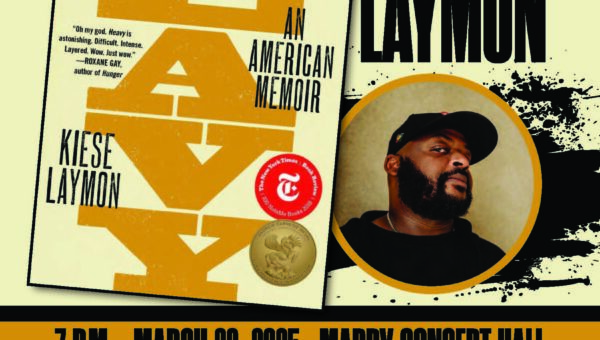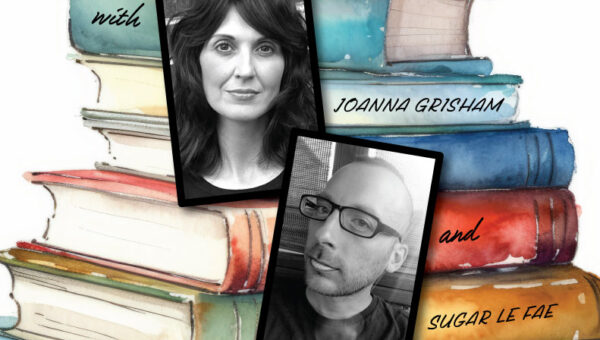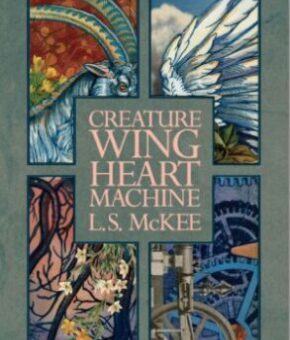Amy Wright: Your award-winning short film Nettles depicts “stinging moments,” suggested by the reference in the title to the stinging plant. Will you talk more about stings as a metaphor and why they inspire you?
Raven Jackson: Many of the memories I hold in my belly, or return to over and over, are subtle ones. Small, but significant. Mundane, but profound. In Nettles, I was interested in exploring that space. Hence, “stinging moments.”
I was drawn to use the metaphor, because a sting is very different from a gash or deep wound. Most stings involve brief moments of pain. With Nettles, I’m exploring fleeting moments of pain in the lives of different girls and women. While writing the script, I tried to focus on experiences I felt the protagonists of the film would return to, again and again, throughout their lives.
Wright: Can you give a particular example—from your life or the film—of memories that sting or stung? And, since stings hurt, how does pain or discomfort inform your work?
Jackson: When I was younger—eleven or so—I always used the bathroom with the door open. I specifically remember sitting on the toilet in the bathroom the day my father, his head low in the doorway, told me: “You got to start closing the door, Ray.” Looking at the closed door, I knew something about me had changed—or ended. It’s such a small, specific moment, but I remember it as if I were still sitting there.
In Nettles, one chapter revolves around a fifteen-year-old girl who’s approached by a man as she walks home on an empty road. The girl, startled, runs as the man yells: “I just wanted to talk to you.” During the audition process, almost every single young girl I spoke to had had a similar experience. In my mind, for the character in the film, this was the first time she was experientially made aware safety isn’t guaranteed. The moment is quick, and physical contact between the two characters is never made, but something significant has shifted for the young girl. A weight has been awakened in her that wasn’t there before.
Experiences, memories, and emotions that can’t clearly be defined as one thing or the other are deeply interesting to me and inform most of my work. Even in Nettles, yes, the focus is on stinging moments, but there are joys, flirtations, and beauty present in the film, too. I’m attracted to work and strive to create work that is visceral and has an emotional stake for the audience. Work that speaks to the multitudes we all contain; the contradictions and fears.
Wright: What is your relationship to nature, and how did it form?
Jackson: One of my earliest memories is splitting a fat worm in two for my father as we fished on the edge of the Cumberland River. I remember mud under my feet. The dark whiskers of the catfish we caught. I think I fell in love with nature then. Fishing opened the door for me.
Most of the artistic work I’ve done to this point in my career hinges on nature. It’s a living, breathing character in my work. As it is in life.
Wright: I love your vivid description of that worm! Will you give an example of how nature manifests in your work?
Jackson: Nature is inextricably linked with humanity, and my creative work leans into that connection. As a photographer, I’m particularly interested in taking photos of Black and brown bodies in natural environments. Breathing. Existing. Taking up space. In my poetry and films, I tend to have imagery of fishing, trees, and fields. Rain. These are some of my obsessions. For instance, in my poem, “all dirt roads taste of salt,” which became the title of my feature project, I write: “winter: the trees won’t stop screaming / i put on a dress i’ve lost the buttons to, refuse / to stay home.” Here, trees mirror the state of the speaker of the poem. That’s another reason I’m drawn to nature in my work as, both in reality and fiction, nature can be an evocative mirror for the state of things—the world.
In the feature film I’m currently writing, my protagonist has a strong relationship with rain—it reminds her of her mother who passed away when she was young. The water cycle of rain is an image I find myself returning to often. For me, how rain changes form is reminiscent of how energy changes form. There’s something deeply resonant in writing a character that swallowed rain as a child and, as an adult, emotionally connects with her mother in the drops.
Wright: What are your plans for this film, which has already won a prestigious SFFILM Rainin Screenwriting Grant?
Jackson: My goal is to have an advanced draft of the script by the end of the year and go into production in early 2020. As I plan to shoot the film in Tennessee, I’m incredibly grateful the film was recently selected for Indie Memphis’ Black Filmmaker Residency in Screenwriting by Barry Jenkins. This residency will allow me ample time to fully flesh out the script, while also casting, location scouting, and conducting exploratory shoots for the film in the process.
Wright: Why is Tennessee an important setting for it?
Jackson: Tennessee is an important setting for the project because I find myself writing scenes of the film with specific places in Tennessee in mind. My mom is from Mississippi, and I used to think the film wanted to be shot there, but the more the film revealed itself to me, the more I knew it had to be shot in Tennessee. The film builds an emotional arc, rather than a traditional narrative one. Lyrical, evocative portraits of the protagonist are ordered intentionally throughout the film and, in many ways, spill into each other.
I recently took photos of my parents after not being home for a long while. It was after fishing, in one of our usual spots. My parents are normally averse to taking photos, but that day, they were totally open to it. Seeing my mother on a reddish dirt road, in front of water, trees at her back, I knew I had to shoot my feature project in Tennessee. It’s a feeling—a knowing—that grew in me that day. As I took photos of my mother, looked through the camera’s lens, it felt like I was taking photos of “Mack,” the protagonist of my feature film. Like, through images, I was talking to her.
Wright: You grew up in the aughts in Tennessee, before moving to New York City to attend graduate school. How would you say the culture and landscape of the South shaped your sense of self?
Jackson: I’ll always be drawn to landscapes in the South. A large part of me knows the most important works I write or make in my career will center on or include the area. I’m very much so an observer and a listener, and the slower pace of Tennessee really allowed my inclination to sit with the texture of things, the details, the breathing, to bloom. No matter what I write or create, I always go back to fishing. My family and I would get up at four in the morning, the sky dark, and head to the Cumberland River. The road empty. Mosquitoes not yet out.
Those mornings are so tangible to me. When I think of how the landscape of the South shaped my sense of self, I think of the Cumberland River, fish in white buckets, and light whispering on water. Dirt and blood under my fingernails. In earth.
Wright: Did moving to New York City change your sense of self?
Jackson: If anything, moving to New York was a gift in that it reminded me of what I’m drawn to as a storyteller. Until I left Tennessee, I don’t think I really appreciated how important nature and landscape is to me as an artist. Also, just simply being in the South lights me up. And being around the people is important to the work I’m interested in creating.
In New York, I gave myself permission to fail, play, and explore in ways I never gave myself while living in Tennessee. I think, for me, I needed to be somewhere where no one knew me to allow myself to fully lean into the growth I was ready for.
Wright: How do you think of identity, and how does it influence your creative work?
Jackson: I’m a Black woman filmmaker and writer from Tennessee, and that affects everything: from the stories I’m interested in telling, to the characters I want to dive into, and the places I want to shoot. One of my goals as an artist is to put complicated Black girls and women onscreen. To explore their multitudes.
Wright: Will you describe a specific character from your films that accomplishes that goal?
Jackson: In the current narrative feature film I’m working on, all dirt roads taste of salt, the life of Mackenzie, better known as “Mack,” a Black woman living in Tennessee, is explored through lyrical and experiential portraits of her at different experiences and ages of her life. In the process of writing the script, I’ve written more portraits of Mack than I will ultimately use in the film, but each unused portrait adds a layer of depth to her character and richens the world I’ve created for her to inhabit.
Creating complicated and layered characters in my work truly feels like listening. For me, the characters are real, breathing people and, if I listen, I can hear what they’d say or do in certain scenes and situations. There’s often research, too, and that works in tandem with simply sitting with the characters. People aren’t just one thing. We contain multitudes. Contradictions. We don’t always say what we mean. In the script, I’m currently fleshing out Mack’s complicated relationship with her father. She loves him but also holds resentment towards him. How does this manifest between them? What do the silences in their relationship say?
I’m drawn to create work that leans into the ways we communicate with each other without dialogue. When I was younger, I remember watching my mother walk naked through the house. I’ve added a similar scene in my film. There’s no dialogue between young Mack and her mother as Mack watches her move around the kitchen, sits with her. But there, in Mack’s eyes, you see something spark—be seen for the first time. In film, often I think the most powerful thing to watch is a character simply breathing. And breathing again.
Wright: Were there particular boons or challenges that shaped you as you grew up?
Jackson: The first time I was accused of stealing, I was with my sister, in a corner store by our house. When the cashier pointed at us, we stood there, quiet. Our hands still. Even now, in stores, I’m always aware of my hands.
Growing up a Black woman, one of the most important lessons I’ve had to learn and relearn for myself is how to take up space. I often return to James Baldwin’s quote: “It took many years of vomiting up all the filth I’d been taught about myself, and half-believed, before I was able to walk on the earth as though I had a right to be here.” As a 29-year-old looking back on my younger self, I see how I often made myself small—would fall into the walls if I could.
When I think of growing up in Tennessee, I think of the smell of my great grandmother Mary’s house and the sound of her screen door closing. Confederate flags on the backs of trucks. My cousin TJ chasing me after I pushed him to his knees on a trampoline, and my Aunt Neicy introducing me to paperback romance novels as birds screamed in trees. Some of these experiences happened in Alabama or Mississippi, but when I think of my childhood, of growing up, they float to the surface and hold out their hands to me.
Wright: Your films and poems explore themes of dance, nature, sexuality, race, and the body. What are some of the questions you ask of these themes?
Jackson: For a recent dance film I directed, A Guide to Breathing Underwater, my collaborator, Donald C. Shorter (concept, performance, choreography) and I, discussed the city as confining, restricting. This was analogous to how Donald felt as a Black gay man in America. During planning for the film, there were many discussions around how to shoot the feeling of being able to take a deep breath. To simply exist. To feel seen. What does that look like on film? In this film? A Guide to Breathing Underwater is one of my most valued collaborations, because we sat with the questions and allowed the answers to come to us. Even if, sometimes, that was on set. That’s one of the things I love the most about this medium—the fact you can prepare non-stop, but in the end, you still have to be open to the sparks of life happening before you. The dialogue with what you’re creating.
Wright: In your poem, “Self-Portrait of a Girl, Becoming,” you write: “They say a moth / flew from my hair— / into woods heavy as a closed door.” What is the relationship between privacy and disclosure in your work?
Jackson: For my feature project, I’m currently interviewing family members and writing fictionalized versions of details and experiences they’ve had in their lives, as well as ones that are completely fiction. I mention this project when answering this question, because I find it’s come up for me during the writing process: how much “truth” I want to lean into. With all dirt roads taste of salt, I’m interested in creating a work inspired by and influenced by familial experiences. And, beyond that, the emotions behind those experiences I want to evoke. That’s always my anchor, my guiding light: the emotion I’m after. Whether tension. Violence. Joy. Or something indefinable.
Wright: I love that you’re talking to family members for your current work. Please say more about why you’re inspired and influenced by familial experiences.
Jackson: On a recent trip to Mississippi, I sat with my grandma, mother, aunt, and cousin—among other family—looking through photo albums. It felt like we were conjuring up years gone past and, in many ways, we were. Family’s a hinge for my work. I’m interested in the ways familial relationships shift and bloom. The scars. The growth.
A catalyst for interviewing family members was all dirt roads taste of salt, but the interview process is also feeding me in other ways. It’s sparking conversations I may not have otherwise had, and opening doors into illuminating memories and details of people I love.
I remember speaking with my father about how, in his youth, in Alabama, he’d often fight white boys in school who’d call him “nigger.” Sometimes, they’d follow him as he walked home, by railroad tracks. When my father hid a weapon inside of a washer, grabbed it after school, and waited for the boys on his walk home, a preacher stopped him before anything could escalate.
This experience—of my young father—made it into some of my poems, and now lives inside of my film. It feels organic, the conversation being had between experiences of family and the film. But delicate, too, and vulnerable. Even though all dirt roads taste of salt is fiction, it’s a priority of mine to get at the emotional weight of familial experiences and details I use in the film. It’s almost another way to name them.
Wright: Since you express yourself in both poetry and film, how would you say each genre complements the other, and where does one pick up and the other leave off?
Jackson: I don’t think there’s a clear boundary between poetry and film, and that’s what’s so exciting for me. My poetry has always been image-based, so it felt like a natural progression to turn to film. Often, I find the details I’m drawn to filming on set are ones that could easily live inside a line of one of my poems. I’m grateful I studied poetry before coming to filmmaking because, in my poems, I found my voice, my obsessions, the textures and worlds I’m interested in exploring. Likewise, I believe having a background in poetry gave me permission to explore structure and form in my filmmaking in a way I may not have allowed myself otherwise.
One true joy for me with film, is working with actors. It’s another layer to what you aim to create. So many times, I’ve been on set believing I fully understand the moment I’m building, and then it’s in an actor’s body and I’m seeing everything for the first time. It’s beautiful, that moment. That discovery: seeing something you’ve written, alive, breathing. It’s reminiscent of hearing my poems read with another’s mouth, tongue. It’s an opening. A release. As if what was once mine, flew away. And I stood there, listening.







